How Portable Generators Influence Our Environment
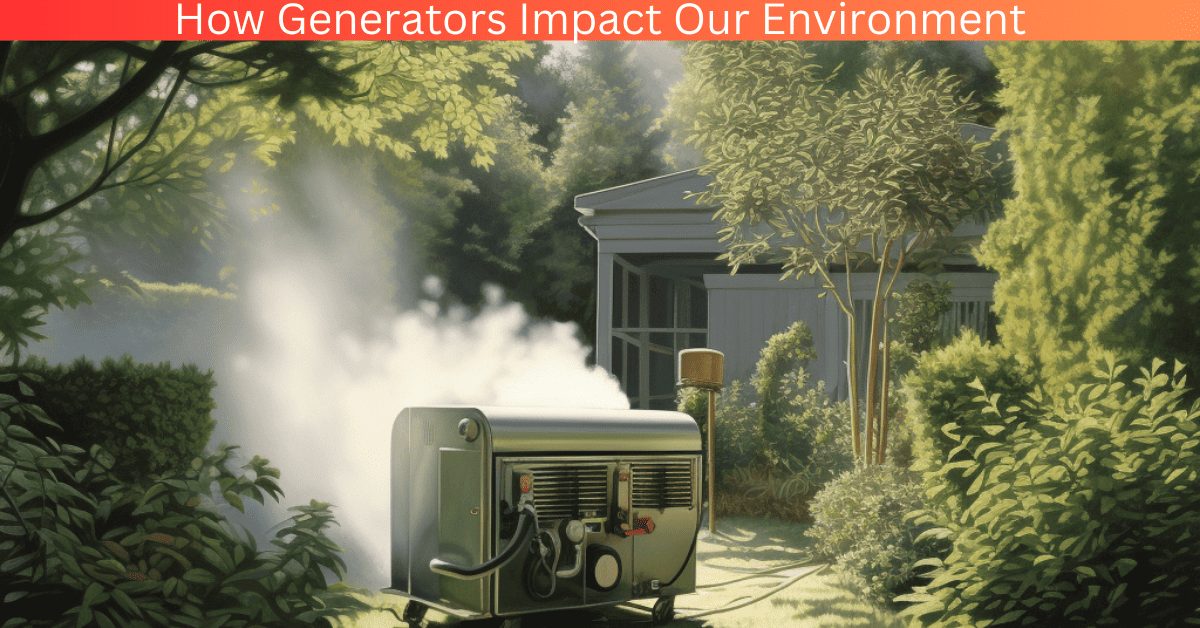
Salutations, valued readership! Portable generators are undoubtedly a godsend during power outages or outdoor activities.
Yet, are we fully informed about their environmental implications? In this piece of writing, we shall probe into how these machines affect our natural world and suggest actions for bettering things.
We’ll evaluate both the constructive and harmful aspects of utilizing portable generators while proposing concrete steps for reducing their ecological damage. So join us now as we embark on an illuminative expedition towards understanding how these gadgets shape our environment!
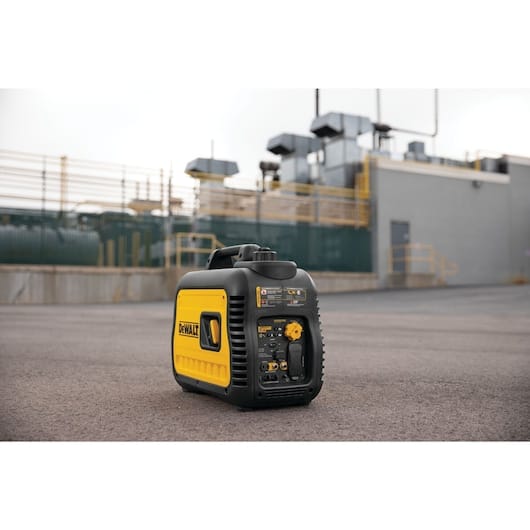
Image Credit: dewalt
How Portable Generators Work
When you need a reliable source of electricity that doesn’t depend on the power grid a portable generator could be your go to solution. What makes them useful is their ability to convert fuel such as gasoline, diesel or propane into electrical energy using an internal combustion engine.
The alternator connected to this engine transforms it into alternating current (AC) electricity that eventually gets converted into direct current (DC) electricity after passing through a rectifier before it reaches your devices via outlets on your generator.
Portability is what makes these machines ideal for people who aren’t always close by their homes or offices because they’re lightweight and easy to move around with minimum fuss needed in maintenance procedures too! Additionally if you’re a DIYer looking for alternative sources of power or have specific needs regarding generator sizes – there are options available. Why settle for uncertainty when it comes to power?
With some basic know how you could have your own trusted energy source at the ready without delay. Portable generators are an optimal choice for those seeking emergency backup systems or even more permanent solutions.
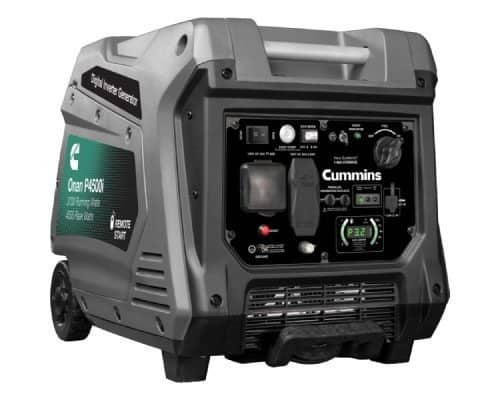
Image Credit: powergenerationservice
The Pros Of Portable Generators
Picture this: you’re camping, hosting a large event or experiencing a sudden power outage. What do you do? Portable generators are a convenient solution for temporary power needs.
However before purchasing one its important to consider their impact on the environment. Heres a breakdown of the pros and cons:
Pros:
- Versatile and can be used in diverse situations
-Economical choice compared to other power sources
-Convenient with low maintenance requirements
-Easily transported with wheels for portability
-Durable for long term use
Cons:
-Potential emissions harm the environment -Noisy operation may disturb others nearby
-Fuel consumption adds to air pollution
-Maintenance costs can be expensive
-Safety hazards if misused Though offering sturdy design capable of withstanding rough weather conditions, portable generators aren’t without flaws that warrant thought when assessing their impact on the environment. Pollutants from these devices can contaminate air causing damage in the long-term and aid in global warming; excessive amounts of noise they produce can disturb animals besides humans too leading one concerned about the environment in which we live; fuel used by them raises concern over spilling during refuelling thereby contaminating water sources available nearby.Drawing upon all our knowledge regarding portable generators’ strengths and weaknesses mentioned above,it’s apparent that weighing positive against negative sides indicates an impact on our ecology. As we proceed it is imperative that we scrutinize the negative implications of using such devices. Our objective is to ascertain responsible usage methods that do not amplify environmental harm.

Image Credit: reactpower
The Cons Of Portable Generators
While portable generators may initially seem like a practical solution for power supply needs in remote areas they have some significant downsides worth considering.
For instance these types of devices create an intolerable amount of noise pollution that affects both nearby residents and animals alike. Additionally finding a suitable spot where one can operate the generator without causing disturbance is a challenging task since it produces quite considerable sound levels . Moreover portable generators release harmful gases into our atmosphere such as carbon monoxide plus other pollutants that pose serious health risks including headaches and even deaths from prolonged exposures without any preventative measures being taken prior/after power generation sessions occur .
Inadequate maintenance or disposal practices may also result in soil/water contamination by these toxins making them hazardous liquids/solids unfit for human consumption use purposes . Lastly but not leastly powering up your portable generator requires non renewable fuel resources that consume more fossil fuels than what we would usually use under typical circumstances. Its vital that we prioritize environmentally friendly energy alternatives to minimize our impact on the environment.
Portable generators have become a common sight in many households but what about their environmental impact? Lets examine how their emissions affect our surroundings.
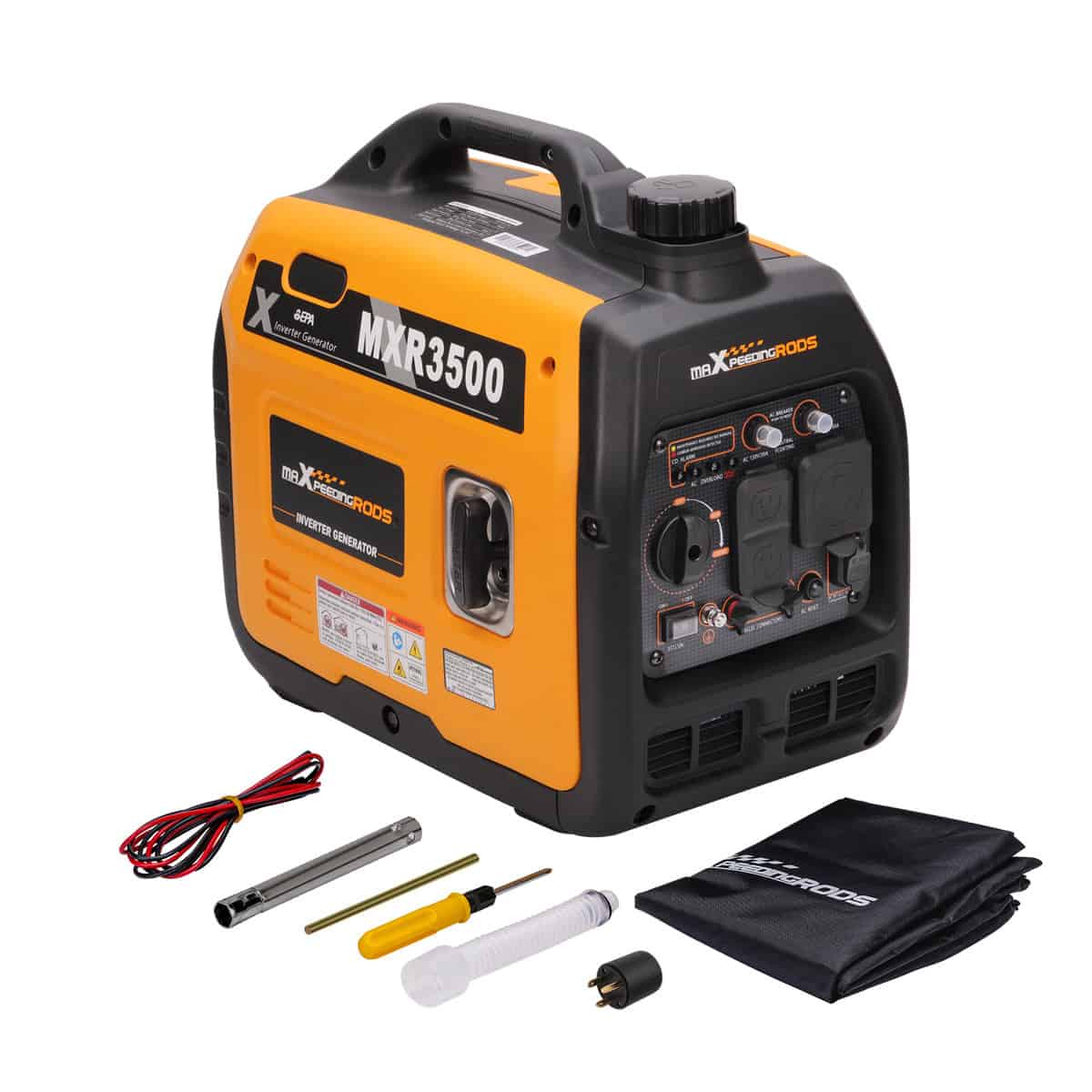
Image Credit: walmart
The Impact Of Emissions
Without question portable generators are an incredibly useful tool in many scenarios; however their emission of harmful substances poses a considerable threat to human health and the environment. Carbon monoxide, sulfur dioxide ,and nitrogen oxides are all examples of such substances produced by portable generators when concentrations become too high.
To address these issues effectively and limit emissions from these machines the Environmental Protection Agency has put regulations in place; nevertheless theres still much work left as they significantly affect global warming.
Carbon monoxide is undoubtedly an extremely dangerous substance emitted by portable generators; prolonged inhalation can cause severe symptoms such as headache and even death under certain conditions. In addition sulfur dioxide contributes to acid rain that weakens plant life and other elements of the ecosystem whereas nitrogen oxides contribute to creating ozone smog that irritates eyes ,throat ,and lung. Moreover these pollutants play a detrimental role in global warming- a major concern today! Therefore its crucial not to overlook the potential environmental consequences associated with portable generator emissions.
We need consciousness raising activities aimed at minimizing their impact on our planet as much as possible. By understanding how our choices affect nature positively or negatively when using portable generators will enable us to make informed decisions.
In order to fully comprehend the environmental consequences of portable generators it is essential that we explore their carbon footprint. By doing so we can deepen our knowledge and awareness regarding the influence these machines have on our planet.
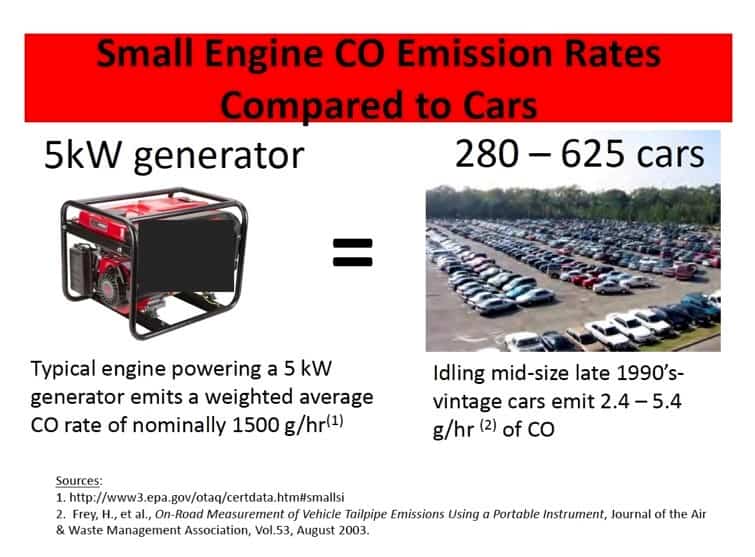
Image Credit: carbonmonoxide
The Carbon Footprint Of Portable Generators
In addition to examining their impact on air quality through emissions we need also think about how using portable generators affects our carbon footprint. Since most models run on gasoline or diesel fuel – substances notorious for releasing large quantities of carbon dioxide – we can’t overlook its contribution towards climate change either.
To combat this issue regulation guidelines were issued by EPA enforcing emission standards along with technology that diminishes pollutants generated through generator operation. Their effectiveness is proven since we see a decrease in generator emissions which contributes to preserving the environment.
Nevertheless portable generators also lead to issues other than air pollution with noise pollution posing another major threat that should not be downplayed.
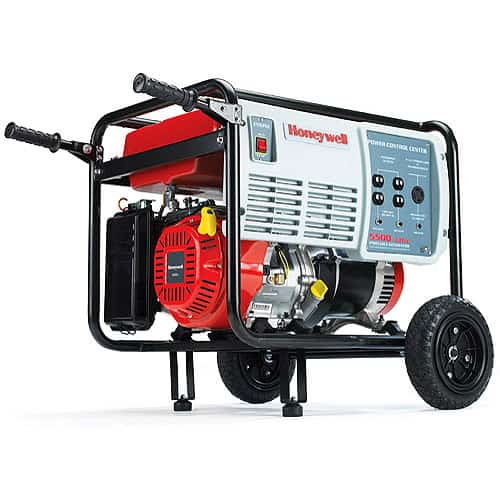
Image Credit: walmart
Noise Pollution
When it comes to reducing noise pollution caused by portable generators there are several key factors that need to be taken into consideration.
Firstly one must recognize the significant impact that such machines can have on both residential neighborhoods and rural areas alike.
By emitting loud sounds that can travel over long distances they disrupt much needed peace and quiet while also potentially harming fragile ecosystems nearby.
To address these concerns proper installation techniques should be employed (including placing exhaust outlets at least five meters away from important structures) maintenance checks should be conducted regularly (to identify loose parts or other issues that could cause excessive vibration or noise) and muffler systems should be used wherever possible.
Every user must take it upon themselves to operate their generator sensibly and conscientiously if we are to avoid sustained disruptions caused by these powerful devices well into the future.
Moving on let us delve into yet another pressing environmental concern associated with portable generators: disposal of waste materials.
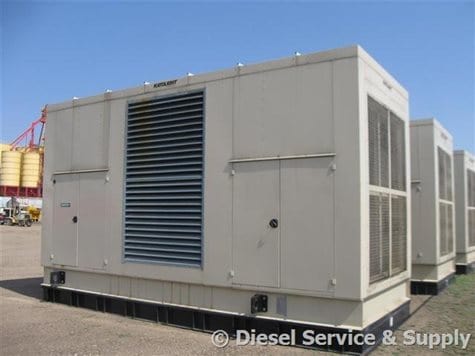
Image Credit: generatorsource
Waste Disposal
Portable generators have significant effects on our environment both positive and negative ones. Improper waste disposal is one notable concern since poorly disposed of machines release harmful chemicals into our air, water supply, or soil which then contaminates neighboring areas while damaging local ecosystems – posing huge environmental dangers that must be addressed urgently.
Its crucial for users to understand how portable generator usage affects our planet so that they can make informed decisions about proper end of life disposal methods. Most municipalities have established regulations governing how these products should be disposed of properly helping avoid unwanted pollution and health risks associated with toxic substances’ exposure levels.
When disposing of a used portable generator – safety should always come first! Follow instructions carefully when handling accessible hazardous materials like batteries or dismantling parts from an old machine ensuring that the environment remains clean and safe while limiting hazardous waste in landfills or other disposal sites. Additionally recycling centers are available for those who prefer responsibly recycling their genset components – this minimizes environmental pollution caused by batteries and other toxic materials present in old generators safeguarding our planets delicate ecosystems. As someone who relies on a portable generator keeping it working properly is likely one of your top priorities.
However in order to ensure both safety and sustainability you’ll need to pay attention to more than just basic functionality. Specifically effective maintenance practices and conscientious operation are key components of minimizing the environmental footprint of your equipment.
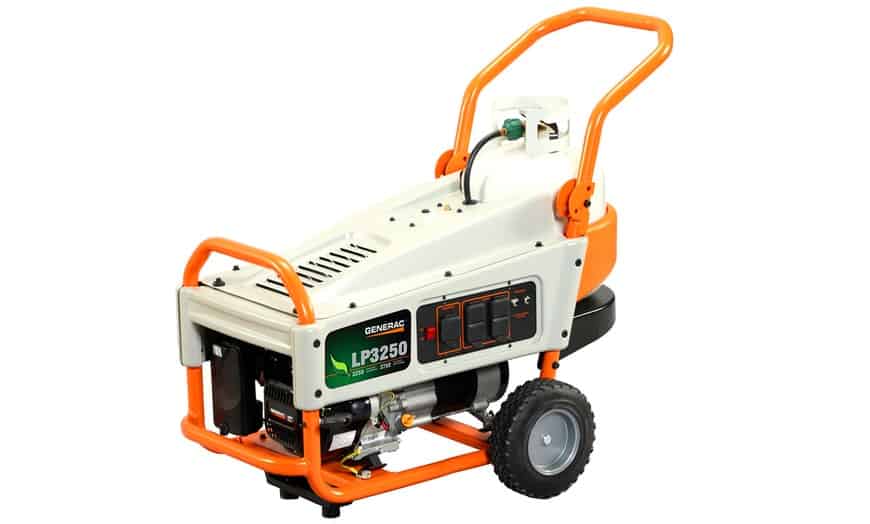
Image Credit: groupon
Safe And Sustainable Use
Preserving our environment while using portable generators is critical for both ourselves and future generations. Therefore we must take responsibility for how we use them and take necessary measures for sustainable usage. To start off being aware of noise pollution regulations in your area concerning portable generator usage can play a significant role in environmental preservation efforts.
Staying within these limits contributes significantly to sustaining a peaceful atmosphere around us.
Moreover carefully reading instructions before operation ensures safe usage while protecting ourselves from potential hazards associated with its operation such as toxic fumes or fire risk.
Intentionally selecting fuel sources that align with safety protocols extended towards transportations storage can also have an immense positive impact on environmental sustainability efforts.
Finally whenever feasible depending on ones situation or budgetary constraints choosing environmentally friendly models will result positively both short-term as well long-term sustainability outcomes within our environment. In order to ensure responsible usage of portable generators while minimizing environmental impact its important to take certain considerations into account.
This includes seeking out models with low emissions output as well as those with highly efficient engines that use minimal amounts of fuel but provide consistent power output. Noise should also be kept in mind when evaluating options available on the market today along with proper methods for disposing waste materials such as oil or gasoline after use which can reduce pollution associated with these products significantly when managed correctly through recycling programs aimed at reducing overall waste produced over time related specifically toward generator usage patterns throughout different seasons annually!
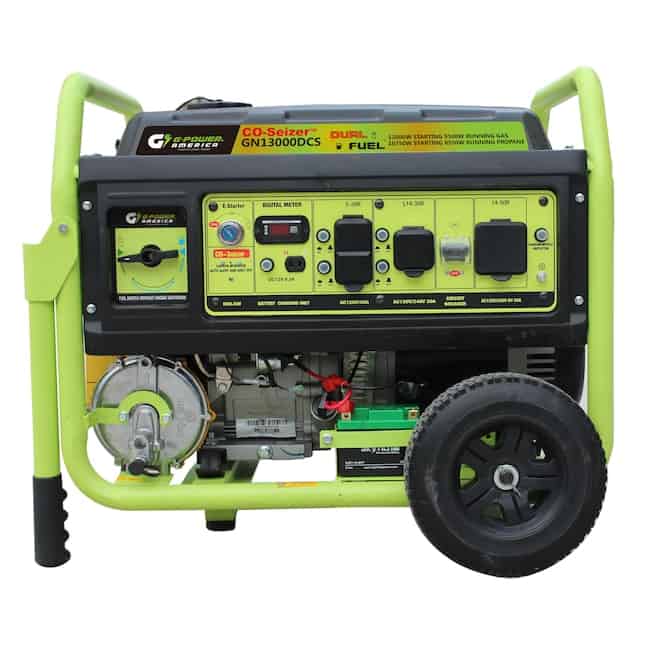
Image Credit: lowes
Alternatives To Portable Generators
Now that we’ve covered how to use portable generators safely and sustainably lets delve into alternatives that leave a smaller ecological footprint.
One option is switching over to a stationary generator which typically operates more efficiently while emitting cleaner air. Additionally since it doesn’t have to be moved around often like with portable units; you won’t have to worry about creating noise pollution within your vicinity.
Another alternative worth exploring would be investing in renewable energy sources such as wind or solar power. Although there may be some initial expenses upfront; it’d eventually result in lower monthly utility bills while producing no harmful emissions such as traditional generators do.
Regardless of the type of generator chosen; proper maintenance should never be overlooked for efficiency and reducing emissions from wear and tear over time – this includes checking oil levels regularly along with other necessary upkeep tasks.
With these helpful tips at hand – rest assured you can experience all the benefits of using a generator without harming our planet needlessly!
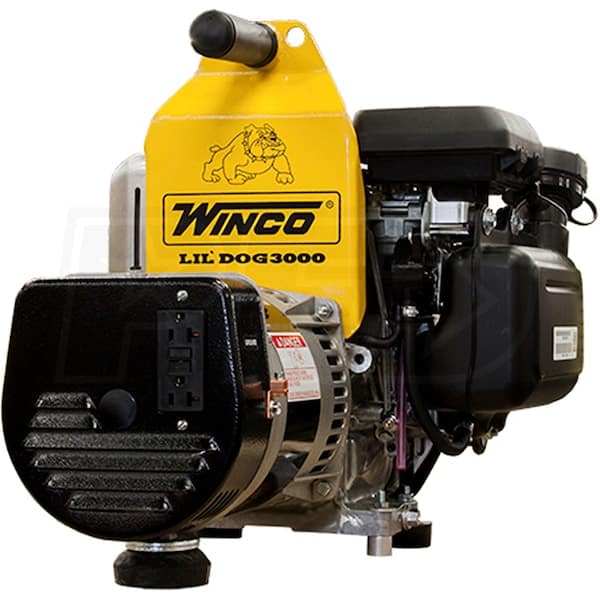
Image Credit: electricgeneratorsdirect
Tips For Reducing Environmental Impact
Undeniably portable generators have a significant impact on our environment – generating noise pollution and air contamination. However we can take some straightforward measures towards minimizing these effects. The foremost approach is selecting an EPA certified low emission generator that operates efficiently and produces fewer pollutants in the air.
Fuel efficient engines should also be preferred when feasible to further reduce emissions.
Additionally proper maintenance of your generator plays a pivotal role in reducing its environmental harm – regularly checking and replacing filters as well as keeping its engine clean and lubricated can contribute towards prolonging its life while decreasing emissions over time. Functionality of the exhaust system is also critical in filtering out hazardous gases before they release into our atmosphere.
Lastly placing your portable generator carefully without causing disturbance or endangering nearby animal habitats cannot be overlooked – so we must always keep this consideration in mind during usage.
From outdoor enthusiasts to construction workers, many rely on generators for power needs without considering their ecological impact. Before firing up yours next time, take heed of these recommendations as they offer meaningful ways for us all to lessen our contribution towards environmental damage from generator usage.

Image Credit: electricgeneratorsdirect
Frequently Asked Questions
How Much Noise Does A Portable Generator Make?
When it comes down to it owning a portable generator can be incredibly convenient during power outages – or even on camping trips or outdoor events where access to electricity is limited. But theres one thing that many people forget about until its too late: the noise level. These machines can emit between 50 and 100 decibels of sound – equivalent to the volume of a lawnmower or motorcycle engine.
And anything louder than 85 decibels is considered potentially dangerous for your ears! Thats why its important for responsible homeowners and campers alike to seek out quieter models when shopping for generators.
Are There Any Regulations On The Safe Disposal Of Portable Generator Waste?
It goes without saying that regulations are necessary when it comes to disposing of portable generator waste – such generators produce hazardous materials which must not simply be tossed away without proper handling.
In order to keep harmful substances out of our environment various countries have instituted legislations surrounding how this type of waste should be dealt with.
Depending on your geographical location there could be restrictions specifying an upper limit for the amount of gasoline or oil allowed in a singular container intended for safekeeping purposes.
To guard against negative environmental impacts and safeguard human health altogether it is imperative that we remain aware and compliant with applicable laws.
How Often Should A Portable Generator Be Serviced To Reduce Environmental Impact?
To keep your portable generator functioning optimally without posing harm to our planet’s ecosystem necessitates regular maintenance checks.
How often your unit requires servicing depends on a range of factors like usage level, fuel type utilized, or even storage location.
It’s generally recommended that you conduct servicing once every six months or after running for 100 hours – whichever comes sooner – as this prevents residue accumulation within the engine that could be deleterious towards nature.
Are There Any Renewable Energy Alternatives To Portable Generators?
Don’t settle for regular portable generators- there are so many eco friendly alternatives out there! From solar panels and wind turbines to biofuel powered generators and hydroelectric systems- these renewable energy options provide a much needed sustainability boost! Not only do these alternatives offer greater sustainability than traditional resources but they are reliable as well as cost effective in the long run.
Investing in renewables can help power up anything from homes or businesses while helping reduce carbon footprints at the same time.
What Steps Can Be Taken To Reduce The Carbon Footprint Of Portable Generators?
Portable generators provide us with convenience during unforeseen situations but come with the downside of causing considerable harm to our environment through their carbon emissions.
The good news is that we have feasible solutions to curb this damage effectively! Choosing renewable energy options like solar and wind power as alternatives is one solution that helps reduce carbon output significantly.
Using propane-run devices or opting for compact and more resourceful models are other effective ways to mitigate pollution levels from portable generators while ensuring optimal performance during usage periods.
To enhance the longevity of these devices while causing less environmental harm requires regular maintenance checks whilst utilizing an on-demand fuel system to curtail wastage rates altogether.
Conclusion
To summarize portable generators can exert significant pressure on our environment. While they have undeniable practicality in times of crisis or when power is urgently required for other reasons it is crucial to bear in mind the noise and air pollution that they generate.
Proper disposal of any associated waste materials must also be ensured as part of a broader effort towards lessening such machines’ environmental impact. In addition exploring alternative renewable energy sources should always be considered where possible instead of defaulting to the use of portable generators.
By implementing these conscientious practices into our daily choices we can prevent any harm caused by these machines and maintain a healthy planet for many years ahead. As consumers empowered with knowledge and resources at our disposal we should act responsibly with the aim of preserving Earths delicate ecological balance.
Image Credit: snowjoe





